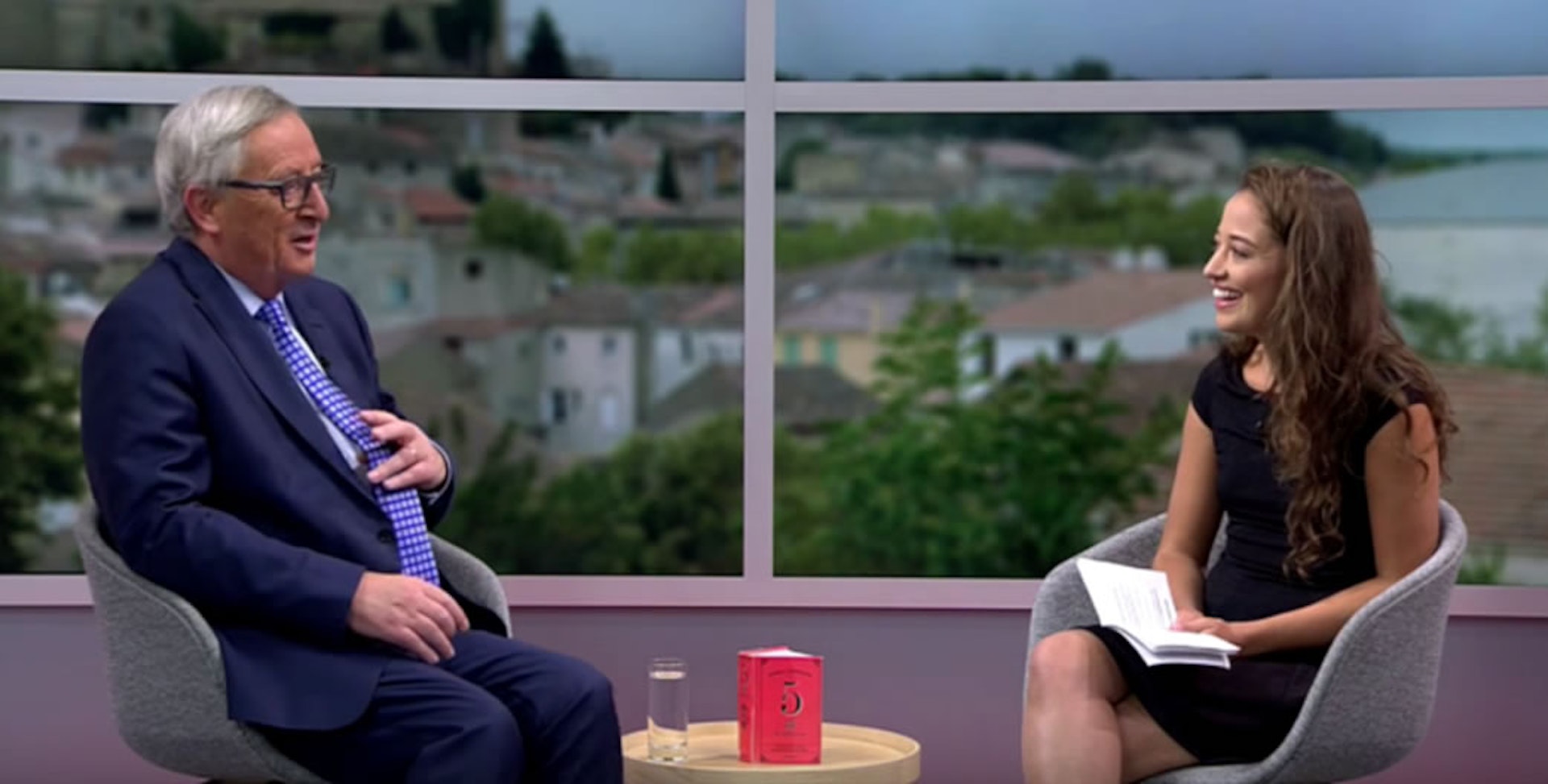Earlier this month, French video blogger Laetitia Birbes was pressured by a YouTube employee to limit her tough questions for the European Union’s chief executive during an interview the company arranged for her. After recording the encounter, she was offered a contract from YouTube.
Birbes recorded a YouTube staffer telling her to soften her planned questions for European Commission President Jean-Claude Juncker, warning that her career on as a video blogger would be short-lived if she alienated YouTube or the Commission.
“You’re already asking very difficult questions to Mr. Juncker,” the YouTube employee said before Birbes’ interview in an exchange she captured on video. “You’re talking about corporate lobbies. You don’t want to get on the wrong side of YouTube and the European Commission… Well, except if you don’t care about having a long career on YouTube.”
Birbes asked the questions anyway during an interview YouTube arranged for Juncker with three European video bloggers. Birbes said she met with YouTube representatives after the interview with Juncker, and YouTube offered her a contract worth 25,000 euros. Birbes said she thought YouTube knew she filmed the interaction the staffer. YouTube and Google belong to the same parent company, Alphabet Inc.
It isn’t the first time YouTube has been accused of attempting to dictate the questions asked of political leaders. The video platform also helped choose the questions posed to President Barack Obama after his 2015 YouTube State of the Union interview with U.S. video bloggers, BuzzFeed reported.
YouTube interviews are a valuable way for Google to gain favor with policymakers, allowing them to bypass journalists with handpicked “citizen bloggers” and pre-approved questions. They also offer Google an opportunity to press top policymakers on issues important to its bottom line.

YouTube staffer warned blogger: “You don’t want to get on the wrong side of YouTube…”
An investigation by the Google Transparency Project found that Google lobbyists attended YouTube interviews with President Obama on at least three occassions during his post-State of the Union interviews on YouTube and Google+, and may have helped select the questions posed to the president. In particular, they appeared to have inserted inquiries on topics important to the company’s business, such as online piracy, net neutrality and patent reform.
"It's clearly inappropriate for corporate actors to dictate journalists' questions whether on YouTube or 60 Minutes," said Anne Weismann, executive director of Campaign for Accountability.
In her interview, Birbes specifically asked Junker about his ability to cut down on corporate tax evasion. Google, notably, is facing scrutiny over its tax avoidance strategies in Europe. Birbes wondered whether Juncker, a former Luxembourg Minister of Finance, was best qualified to crack down on corporate tax evasion.
“Are you in the best position to put an end to this social injustice?" she asked. “Because giving the mission to fight tax evasion to a man who was minister of finance for 18 years in the biggest European tax haven, isn’t it a bit like giving a bank robber a job as police chief?”




